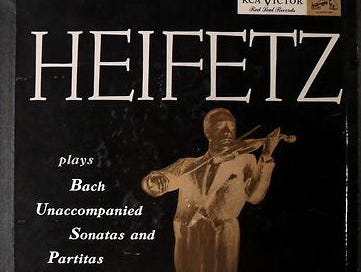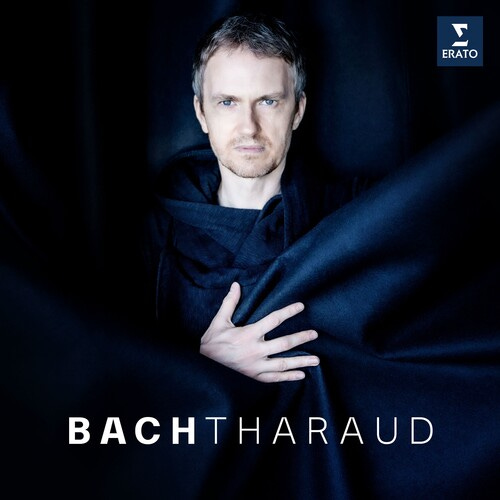November 4: The Violin Sonatas and Partitas (Jascha Heifetz, violin)
When it's wrong, and when it's right
Before the era of recorded music, scores were merely questions waiting to be answered. “I’m far away, and/or dead. Would you kindly bring my work to life? ”
It’s our burden and our opportunity.
Sometimes it goes great, and sometimes, well...
This week, Apple Music shoved a new Bach album in my face, fulfilling its mission to distract me from completing the listening I’m already behind on. This album of piano arrangements is from the dashing Frenchman Alexandre Tharaud.
Tharaud is a strong player, and the album started well enough. Things go off the rails when we arrive at his adaptation of the Allemande from the Lute Suite in E minor (BWV 996). For reference, here’s how the ending could sound, from Segovia:
Here’s Tharaud:
Ach, mein hertz!
I like a dramatic pause as much as anyone, but not a brick wall dropped from the sky when you’re just out for a stroll. Don’t leave me hanging, bro. Segovia lets the ending breathe, Tharaud chokes it out.
Look, I get it — artists have to make choices to stand out when they’re playing pieces that have been recorded hundreds of times, and sometimes it goes wrong.
Then there are albums where it all goes right. We’re going to listen to excerpts from Jascha Heifetz’s legendary recordings of the Violin Sonatas and Partitas. (BWV 1001-1003 and 1005-1006; BWV 1004 gets its own post in December because it’s the single greatest piece of music ever written.)
The violin is ruthless. You’ve heard little kids play it, there’s no mercy. The Sonatas and Partitas demand technical mastery and bold interpretation — Bach expects his single-note lines on the little fiddle to explode into personal worlds.
Many of the greats falter. I’ve heard these pieces in concert twice, by two major players, both of whom honked it. One gave a snoozy recitation of the notes, the other raced through as if to show the audience how fast he could play. Disappointing! (At the former, I found myself surprised to be sitting beside Mikhail Baryshnikov (!?), who was one of the most attractive people I’ve ever seen.)
Jascha —a Jewish émigré who escaped Europe before WWII— set a new benchmark for how these canonical works should be performed. His artistic boldness turned him into a legit American celebrity violinist (in the brief period when there could have been such a thing). He plays as though he’s installing the scores atop the mountain while carving a bust of himself to sit alongside them.
His precise, blazing performance always sounds deeply personal, and uniquely Jascha.
These are assured but risky performances, always on the knife’s edge, exciting and beautiful. Jascha never runs cold the way of some other virtuosos do — you still hear the scrapes of the bow, and the vibratos are pulsing with life.
We’re lucky to have video. Here’s the opening movement of the E Major Partita, BWV 1006. Sing the opening theme all day, and savor when he and JSB turn the beat around (~1:16). He goes dark toned on the low notes (~2:30), and he fortissimo’s the climactic high notes (4:00). The time is perfect, if not uniform. Genius:
I like every choice Jascha makes, five stars.
Listen, of course, to the whole thing (YouTube, Apple Music, Spotify), but here are some other highlights from this collection:
The Fugue of BWV 1001, the G Minor Sonata, is, scrapey, raw, and perfect. That little descending bass line at 0:18!:
Parts of 1001’s presto movement presage Paganini:
The best song of this collection is the Sarabande of the B Minor Partita, BWV 1002, you probably know this one:
From the E Major Partita, check the decrescendo at the very end of the Loure — extremely hard to pull this off:
The Gavotte was the melody that turned me into a Bach guy when I heard Segovia’s recording of the same. The bowing is sharp and delicate all at once:
BWV 1003 in A Minor may be the least compelling of the set, but last movement is fast and fun:
I’m a sucker for double stops and a pedal tone — here’s the C Major Fugue in BWV 1005:
It’s all music to live by. The Chaconne awaits.






Nice article. But for a modern violinist I prefer Szeryng to Heifetz. Also I find the A minor sonata very strong.
Bach at his best and Evan at his best!